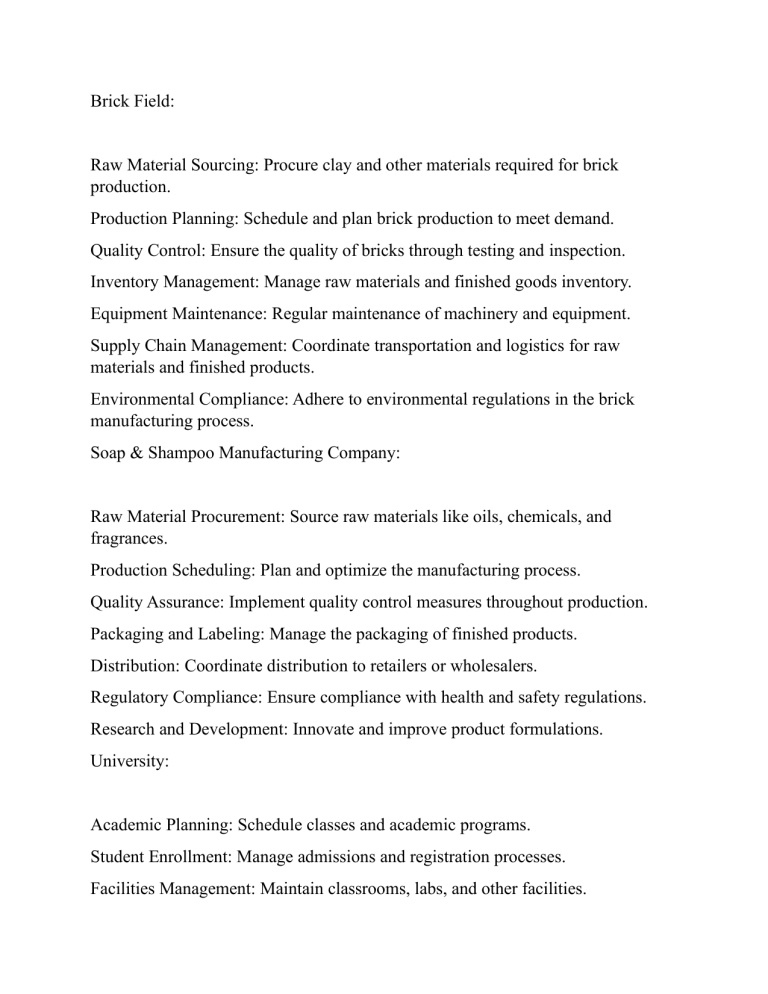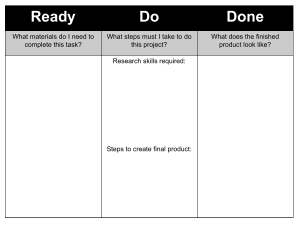
Brick Field: Raw Material Sourcing: Procure clay and other materials required for brick production. Production Planning: Schedule and plan brick production to meet demand. Quality Control: Ensure the quality of bricks through testing and inspection. Inventory Management: Manage raw materials and finished goods inventory. Equipment Maintenance: Regular maintenance of machinery and equipment. Supply Chain Management: Coordinate transportation and logistics for raw materials and finished products. Environmental Compliance: Adhere to environmental regulations in the brick manufacturing process. Soap & Shampoo Manufacturing Company: Raw Material Procurement: Source raw materials like oils, chemicals, and fragrances. Production Scheduling: Plan and optimize the manufacturing process. Quality Assurance: Implement quality control measures throughout production. Packaging and Labeling: Manage the packaging of finished products. Distribution: Coordinate distribution to retailers or wholesalers. Regulatory Compliance: Ensure compliance with health and safety regulations. Research and Development: Innovate and improve product formulations. University: Academic Planning: Schedule classes and academic programs. Student Enrollment: Manage admissions and registration processes. Facilities Management: Maintain classrooms, labs, and other facilities. Curriculum Development: Design and update academic programs. Student Services: Provide support services to students. Faculty Management: Recruit, train, and support faculty. Assessment and Accreditation: Ensure compliance with educational standards. Mobile Phone Operator: Network Management: Maintain and optimize the mobile network infrastructure. Customer Support: Provide assistance to users for technical issues. Billing and Revenue Management: Handle billing and revenue collection. Marketing and Sales: Promote and sell mobile plans and services. Network Expansion: Plan for and implement network expansion. Regulatory Compliance: Adhere to regulations in the telecommunications industry. Technology Upgrades: Stay updated with advancements in mobile technology. Restaurant: Menu Planning: Design and update the restaurant menu. Food Procurement: Source and manage the supply of ingredients. Kitchen Operations: Manage the cooking and preparation processes. Inventory Control: Monitor and control food and beverage inventory. Customer Service: Ensure high-quality service and customer satisfaction. Staff Management: Recruit, train, and schedule restaurant staff. Health and Safety Compliance: Adhere to hygiene and safety regulations. Each of these entities requires effective operations management to ensure smooth and efficient processes, meet customer expectations, and achieve organizational goals. The specific tasks may vary based on the size, industry, and individual characteristics of the organization.


